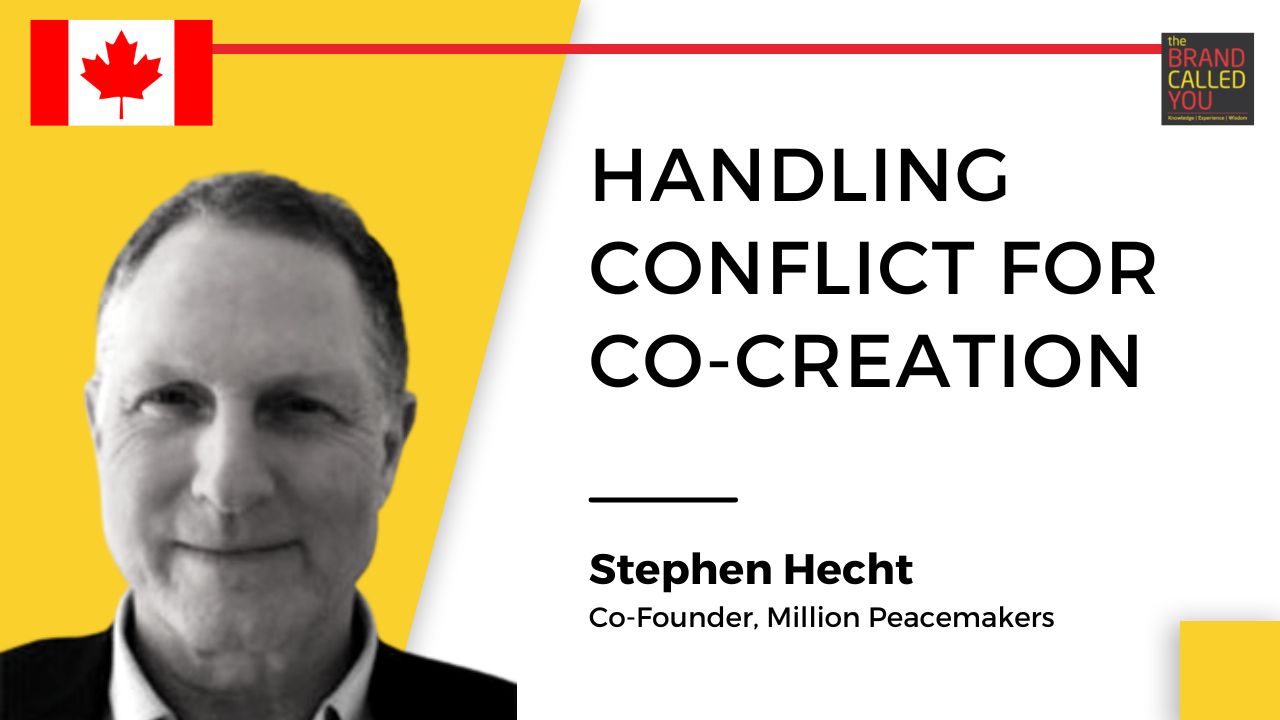Stephen Hecht, Co-Founder, Million Peacemakers
- Stephen Hecht is the co-author of the bestseller, “Nonflict: The Art of Everyday Peacemaking.”
Podcast
Overview
In the highly polarised world that we live in, we experience conflict at many levels: global, business, family, networks, etc. There have always been advocates of peace to create a safe environment for people’s physical and mental well-being. But what does conflict mean and how to resolve it peacefully? The answer lies in nonflict, promoting peace, indulging in constructive conflict, and leading to co-creation. Today, we discuss how peace can be promoted and conflicts are handled without avoiding them.
[00:40] – About Stephen Hecht
- Stephen Hecht is the co-author of the bestseller, “Nonflict: The Art of Everyday Peacemaking.”
- He is the co-founder and Chief Executive Peacemaker of Million Peacemakers.
- He is the winner of the Canada Award for Business Excellence and the YMCA Peace Medal.
- Stephen has served in YPO leadership at Chapter, Regional and International levels with a focus on education and networks.
- Currently, he is the Chair of the Peace Action Network building bridges in 140 countries with a focus on inner and family peace as well as polarization and conflict zones.
[01:47] – Tell me about the goals of Million Peacemakers
- Since 2014, we have trained 2,40,000 peacemakers in the non-conflict way, impacting 8 million people.
- We are excited about our youth initiative with a focus on empowering youth to learn, use and share the non-conflict way in their various communities across the world.
- We are working on co-creating a more peaceful future for ourselves and future generations.
[08:12] – Can you describe nonflict?
- Nonflict is another way of dealing with conflict.
- Most of the common ways include avoiding conflict, fleeing conflict, and using force or power to deal with conflict.
- Conflict is two or more different perspectives coming into contact with each other. It is neither positive nor negative. It is how you deal with is makes it constructive or destructive.
- The purpose of nonflict is to give a more constructive way to deal with conflict because we need constructive conflict for innovation and growth.
- The first step is to understand yourself and your partner. When we listen to the other party without interrupting, judging or having to agree with them, we build trust and understanding.
- The next step includes understanding the shared reality.
- Step three includes co-creation.
RESOURCES:
You can connect with Stephen Hecht – LinkedIn
Enjoy this podcast?
If you learned new insights about conflict management and peacemaking, subscribe and share it with friends!
Love to give us 5 stars? ⭐⭐⭐⭐⭐ If you do, we’d love a review from you. Help us reach more people to keep them in the know as we talk to leaders, high achievers, and thought leaders from diverse backgrounds and nationalities. Excellence can come from anywhere; stay in the know, and hear from emergent high achievers and gurus.
Stay updated with what’s shaping the world today through the latest The Brand Called You Podcast episode. Follow us on iTunes, Spotify, and Anchor.fm.
Don’t forget to follow and message us on these platforms!
Website: https://tbcy.in/
Facebook: https://www.facebook.com/followtbcy
LinkedIn: https://www.linkedin.com/company/tbcy/
Twitter: https://twitter.com/followtbcy
YouTube: https://www.youtube.com/c/followtbcy
Thanks for listening!
Profile
- Stephen Hecht is the co-author of the bestseller, “Nonflict: The Art of Everyday Peacemaking.”
- He is the co-founder and Chief Executive Peacemaker of Million Peacemakers.
- He is the winner of the Canada Award for Business Excellence and the YMCA Peace Medal.
- Stephen has served in YPO leadership at Chapter, Regional and International levels with a focus on education and networks.
- Currently, he is the Chair of the Peace Action Network building bridges in 140 countries with a focus on inner and family peace as well as polarization and conflict zones.


